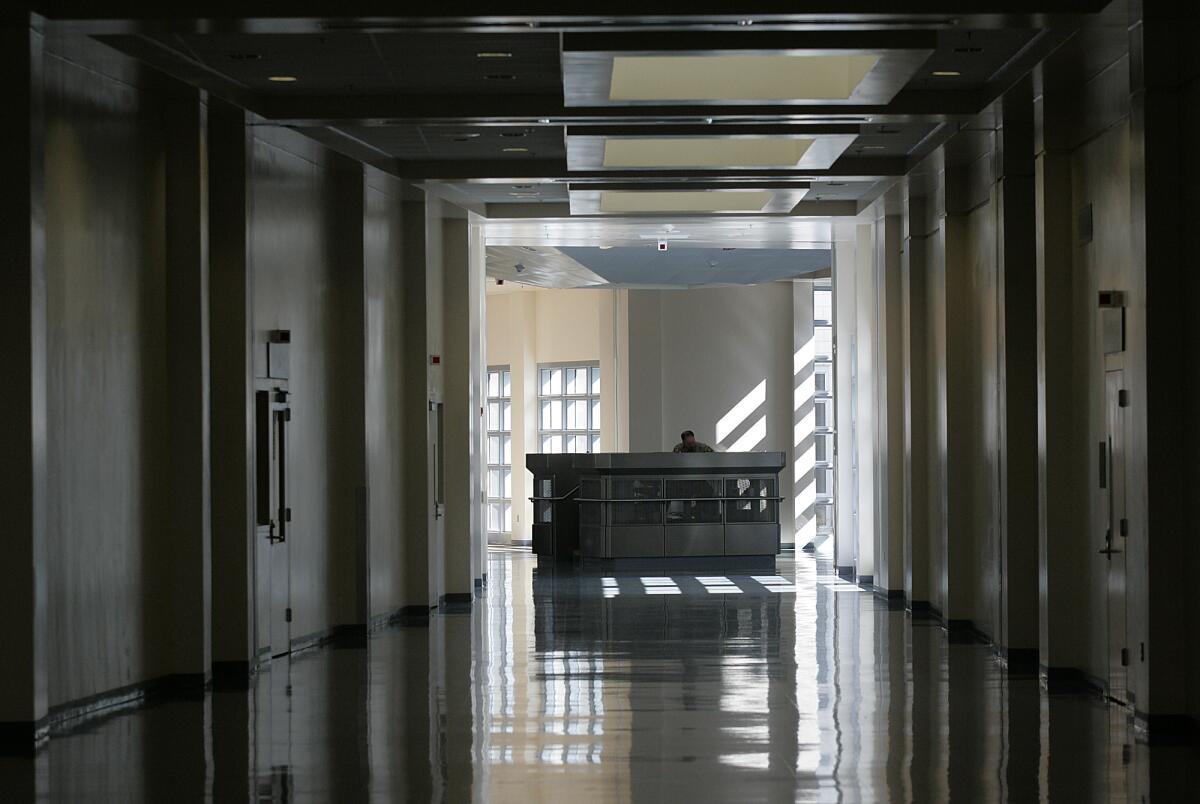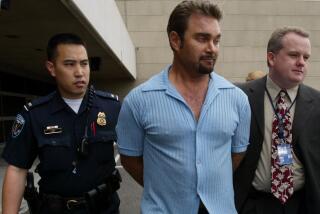Rapist who spent 14 years in state mental hospital awaiting trial is ordered released

SAN FRANCISCO — A convicted rapist who spent 13 years in prison and nearly 14 years in a state mental hospital while awaiting a trial that never came was ordered released Wednesday by a state appeals court.
The 1st District Court of Appeal in San Francisco agreed with a lower court judge who said there had been a “systemic breakdown in the management” of Terrance Butler’s case, the San Francisco Chronicle reported.
Butler, however, will remain confined while prosecutors decide whether to appeal, the news outlet said.
Butler was convicted in 1993 of raping two women and attempting to rape a minor. His 18-year sentence was reduced because of time off for good behavior. But as he neared release in 2006, Alameda County prosecutors sought to have him declared a sexually violent predator.
Just before George Vasquez was scheduled to get out of prison, Los Angeles County prosecutors made a plea to the court: Don’t let him free — he’s too dangerous to live in public.
That would have allowed the state to keep him in a mental hospital indefinitely until he no longer was considered a danger to society. Butler was placed in Coalinga State Hospital in 2007.
But his trial was never held.
Instead, preliminary proceedings dragged on through more than 50 court hearings involving six prosecutors and eight public defenders who agreed to successive postponements.
“Blame for the delay must be shared between a district attorney’s office that abdicated its responsibility for prosecuting this case, a public defender’s office that disregarded Butler’s repeated demands for trial, and a trial court that took no meaningful action,” appellate Justice Gabriel Sanchez said in the 3-0 ruling.
Because the proceedings are held in civil court, they aren’t covered by the constitutional right to a speedy trial in criminal cases, but Butler still deserved a “timely” trial and suffered a “significant deprivation of liberty,” according to the appellate court.
More to Read
Sign up for Essential California
The most important California stories and recommendations in your inbox every morning.
You may occasionally receive promotional content from the Los Angeles Times.










